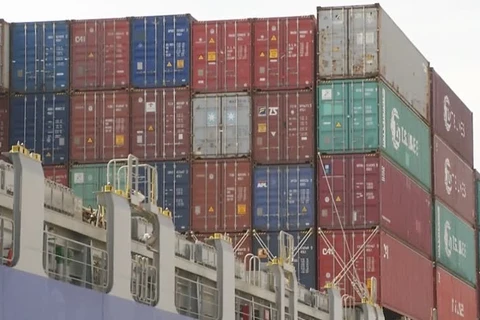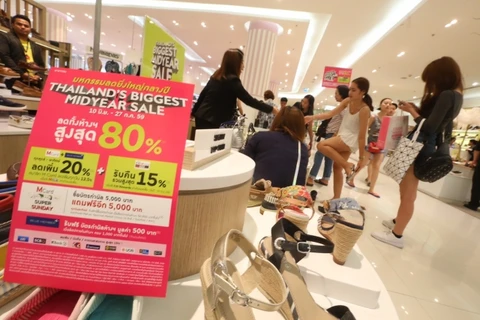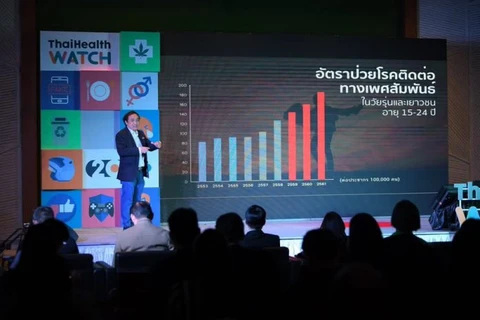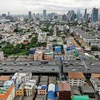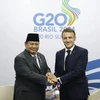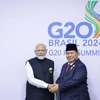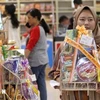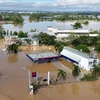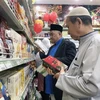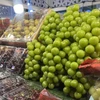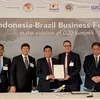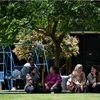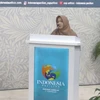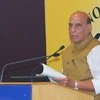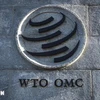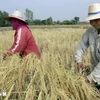Bangkok (NNT/VNA) - The Department of Environmental Quality Promotion (DEQP) of Thailand has signed an agreement with eight TV stations to discourage the availability of single-use plastic bags by censoring scenes showing the bags in programmes, while major shops and stores will officially discontinue offering these bags from January 1.
Minister of Natural Resources and the Environment Varawut Silpa-archa, ministerial officials, and executives from NBT, MCOT, ThaiPBS, Workpoint TV, ONE31, GMM25, Channel 8, and Channel 7, have signed the Censor Plastic Bags campaign in the hope of helping change consumer behaviour from taking single-use plastic bags from stores, to use their own multi-use fabric bags instead, when shopping.
Television media is recognised as a media channel that reaches most people, and can effectively help in promoting an environmentally conscious mindset among audiences. The campaign targets the general audience watching television dramas and other programmes.
The Natural Resources Minister said that the campaign aims to reduce images of single-use plastic bags being broadcast, and stressed the campaign where 90 major shopping malls and store chains will discontinue offering plastic bags to customers from January 1, 2020 onwards.
After d-day, customers will have to bring their own bags to carry their purchased items. It is anticipated the move will significantly help reduce plastic bag waste that accounts for 80 percent of the 2.7 million tons of yearly garbage in Thailand. Anti-plastic bag campaigns this year have so far stopped some three billion plastic bags from being distributed.
Thailand used to rank as the 6th largest source of marine debris. Following the anti-plastic bag campaign, the country is now ranked 10th. This shows that most Thai people are ready to change their behaviour and stop using disposable plastic bags.
The discontinuation of plastic bags being offered at stores from January 1 will help cut down national plastic bag usage by 30 percent, or about 12 billion bags a year. Future cooperation by local grocery stores, fresh markets, and community shops by also not offering these bags would help reduce national plastic bag usage by 60 percent, or 20-30 billion bags a year.
Under the agreement with TV stations, parts of programs showing plastic bags being used will be cut out or censored to minimise exposure to audiences. Other content will be broadcast to encourage the use of reusable bags instead, to raise public awareness, and encourage audiences to change their behaviour. The DEQP expects more TV stations will join the campaign in the future./.
Minister of Natural Resources and the Environment Varawut Silpa-archa, ministerial officials, and executives from NBT, MCOT, ThaiPBS, Workpoint TV, ONE31, GMM25, Channel 8, and Channel 7, have signed the Censor Plastic Bags campaign in the hope of helping change consumer behaviour from taking single-use plastic bags from stores, to use their own multi-use fabric bags instead, when shopping.
Television media is recognised as a media channel that reaches most people, and can effectively help in promoting an environmentally conscious mindset among audiences. The campaign targets the general audience watching television dramas and other programmes.
The Natural Resources Minister said that the campaign aims to reduce images of single-use plastic bags being broadcast, and stressed the campaign where 90 major shopping malls and store chains will discontinue offering plastic bags to customers from January 1, 2020 onwards.
After d-day, customers will have to bring their own bags to carry their purchased items. It is anticipated the move will significantly help reduce plastic bag waste that accounts for 80 percent of the 2.7 million tons of yearly garbage in Thailand. Anti-plastic bag campaigns this year have so far stopped some three billion plastic bags from being distributed.
Thailand used to rank as the 6th largest source of marine debris. Following the anti-plastic bag campaign, the country is now ranked 10th. This shows that most Thai people are ready to change their behaviour and stop using disposable plastic bags.
The discontinuation of plastic bags being offered at stores from January 1 will help cut down national plastic bag usage by 30 percent, or about 12 billion bags a year. Future cooperation by local grocery stores, fresh markets, and community shops by also not offering these bags would help reduce national plastic bag usage by 60 percent, or 20-30 billion bags a year.
Under the agreement with TV stations, parts of programs showing plastic bags being used will be cut out or censored to minimise exposure to audiences. Other content will be broadcast to encourage the use of reusable bags instead, to raise public awareness, and encourage audiences to change their behaviour. The DEQP expects more TV stations will join the campaign in the future./.
VNA

